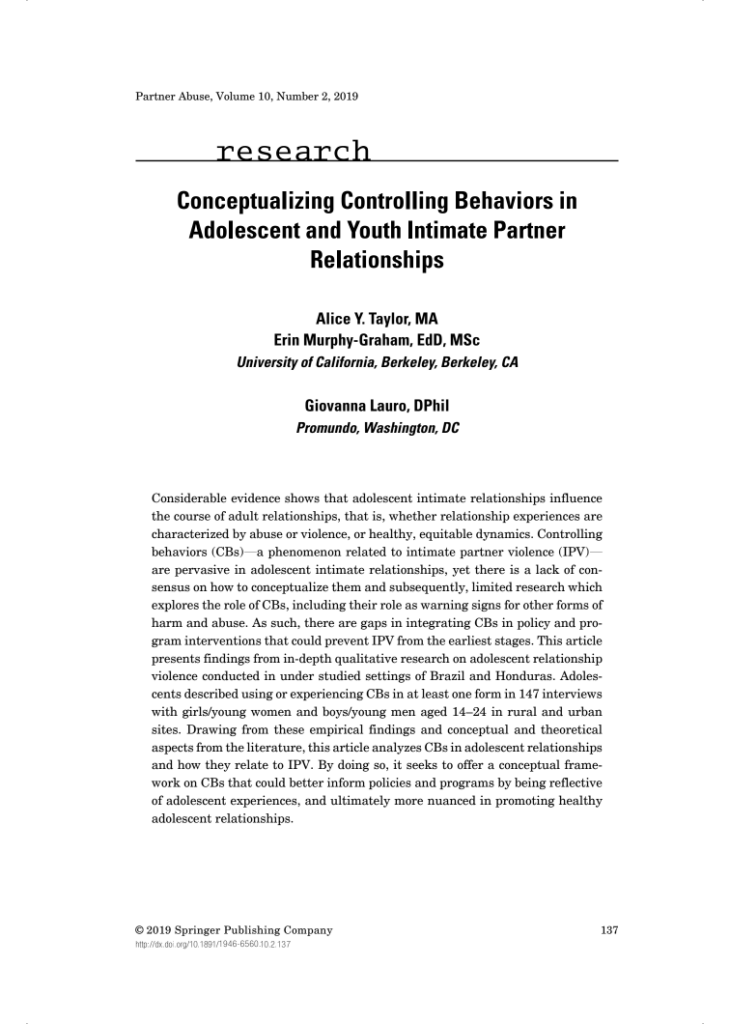“Conceptualizing Controlling Behaviors in Adolescent and Youth Intimate Partner Relationships” is an article published in the Partner Abuse journal, drawing from Equimundo’s Adolescent Relationship Violence in Brazil and Honduras report.
Considerable evidence shows that adolescent intimate relationships influence the course of adult relationships, that is, whether relationship experiences are characterized by abuse or violence, or healthy, equitable dynamics. Controlling behaviors (CBs)—a phenomenon related to intimate partner violence (IPV)—are pervasive in adolescent intimate relationships, yet there is a lack of consensus on how to conceptualize them and subsequently, limited research which explores the role of CBs, including their role as warning signs for other forms of harm and abuse. As such, there are gaps in integrating CBs in policy and program interventions that could prevent IPV from the earliest stages. This article presents findings from in-depth qualitative research on adolescent relationship violence conducted in under studied settings of Brazil and Honduras. Adolescents described using or experiencing CBs in at least one form in 147 interviews with girls/young women and boys/young men aged 14–24 in rural and urban sites. Drawing from these empirical findings and conceptual and theoretical aspects from the literature, this article analyzes CBs in adolescent relationships and how they relate to IPV. By doing so, it seeks to offer a conceptual framework on CBs that could better inform policies and programs by being reflective of adolescent experiences, and ultimately more nuanced in promoting healthy adolescent relationships.
